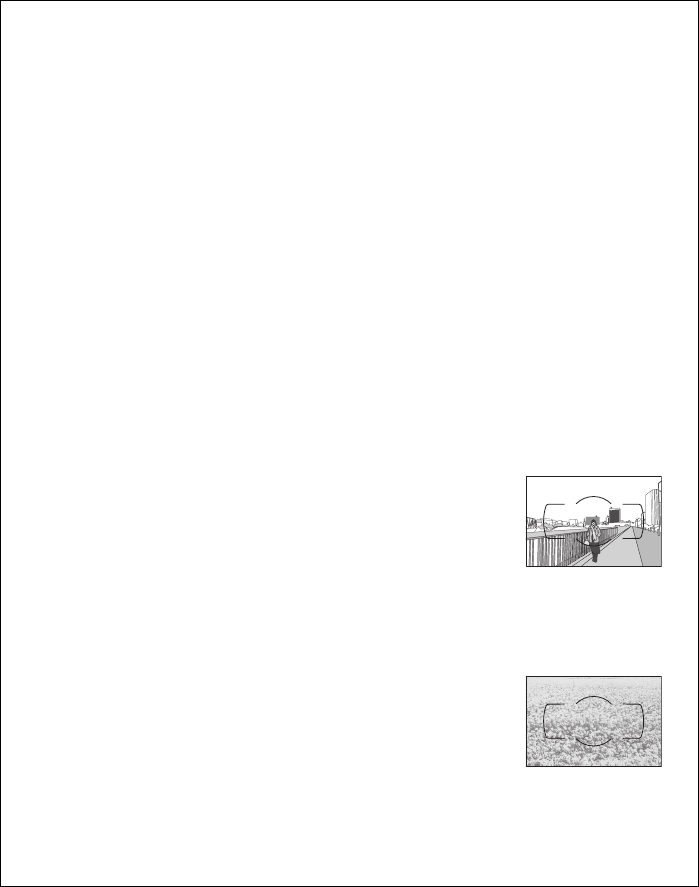
270 Technical Notes
D Lens Care
• Keep the CPU contacts clean.
• Use a blower to remove dust and lint from the lens surfaces.
To remove smudges and
fingerprints, apply a small amount of ethanol or lens cleaner to a soft, clean cotton cloth
or lens-cleaning tissue and clean from the center outwards using a circular motion, taking
care not to leave smears or touch the glass with your fingers.
• Never use organic solvents such as paint thinner or benzene to clean the lens.
• The lens hood or NC filters can be used to protect the front lens element.
• Attach the front and rear caps before placing the lens in its flexible pouch.
• When a lens hood is attached, do not pick up or hold the lens or camera using only the
hood.
• If the lens will not be used for an extended period, store it in a cool, dry location to prevent
mold and rust.
Do not store in direct sunlight or with naphtha or camphor moth balls.
• Keep the lens dry.
Rusting of the internal mechanism can cause irreparable damage.
• Leaving the lens in extremely hot locations could damage or warp parts made from
reinforced plastic.
A A Note on Wide-Angle Lenses
Autofocus may not provide the desired results with wide– and super-wide–angle lenses in
the following situations:
1 The subject does not fill the focus point.
If the subject does not fill the focus point, the camera may
focus on the background and the subject may be out of focus.
Example: A far-off portrait
subject at some distance
from the background
2 The subject contains many fine details.
The camera may have difficulty focusing on subjects that
contain many fine details or that are lacking in contrast.
Example: A field of flowers
In these cases, use manual focus, or use focus lock to focus on another subject at
the same distance and then recompose the photograph.
For more information, see
“Getting Good Results with Autofocus” (0 52).


















